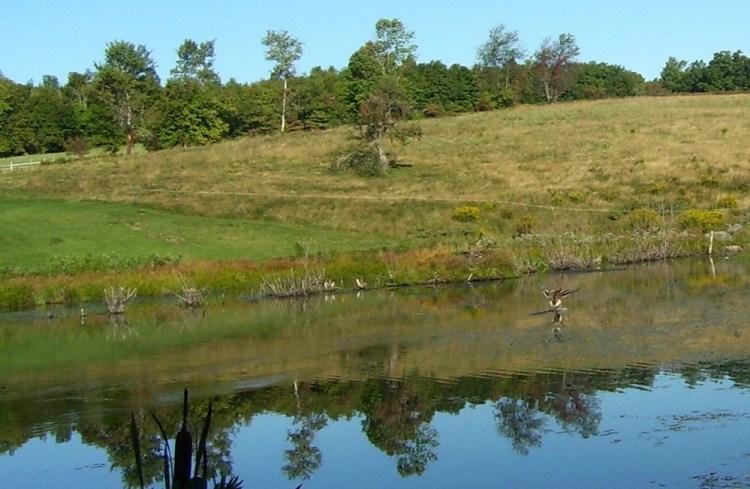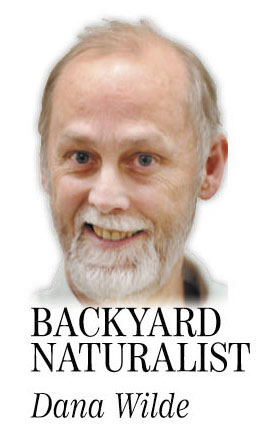ONE MORNING LAST week, with the lake nearly flat calm, two ducks suddenly flapped up from behind some reeds. They went clipping in tight formation over the slate-smooth October water like fighter jets, or like racing dancers. A third duck scrambled into the air and followed them toward the far shore.
They were unutterably beautiful. The same planetary strangeness that strikes when geese clamor overhead in loosening, tightening chevrons.
What is that.
When I was young, not much past teenage, a sunset could knock awe into me, but birds seemed trivial. Geese and ducks looked ungainly to my slightly cynical, slightly innocent eye, wrong-proportioned with ropy necks and wings set too far back on their bodies. Robins, sparrows, chickadees — not that I knew all their names yet — were bird-brained. Crows stalking around like grouchy old men. Seagulls veering like cartoon characters seeking french fries or fish bait.
The night sky clocked me the same as a sunset, so I started learning constellations. Easy ones first — Orion, the Big Dipper, Little Dipper, Cassiopeia. In October Cygnus the swan glides highest around 7 p.m., alongside Vega, in Lyra. Its five bright stars exactly depict the shape of a wild swan or Canada goose in flight — long neck, and wing-stars set back toward Deneb glistening at the tail.
The still sky turned out to be a mirror. As stars began making more sense, so did birds. This was in and around the time I was 28, when Saturn wheels into its first full circuit of your lifetime, and whether you know it or not you get the first uncomfortable notice you’re growing older. Many people have a kind of internal wake-up call around then, I mean, if they’re paying attention.
Soon after the late-summer sky got organized around Cygnus, I was hitchhiking one cool October morning on a moor in southern England. Suddenly out of the mist-covered bracken a flock of Canada geese rose in unison, silently, like stars spinning up on a horizon. It was astonishing. They floated upward like a swell of music and then away, in great broken rings, low over the autumn-colored moorlands.
You could say, in a way, that I grew up in that moment. There was a lot of heartache and mistake to come, but there was no mistaking birds any more. Birds are an intelligence from an entire other dimension.
So when I saw these ducks climb the air over Unity Pond last week, I was dumbstruck. Again. Their gorgeous head-to-tail proportions, beating wings and synchronized trajectories feel like a message I can’t hear.
It’s dangerous to try to decipher too specifically what meaning you think you’re hearing. Sunsets start being omens, which they’re not. Hurricanes start being punishments, which they’re not.
But somehow — when ducks take flight and whatever it is that strikes, strikes — you take the meaning to yourself. The sense of beauty that swells through your chest and shoulders feels like sound you can’t quite make sense of. Like the phrase you spoke in a dream that seems to clarify everything, but when you wake up, you can’t quite remember it. Even though you said it yourself. It’s yours, whatever it is.
That’s what ducks, geese, blue jays in the woods, and the constellation Cygnus look like to me. Especially in October, when the wake-up call to winter unrolls out of unseen dimensions, like a swell of string instruments soaring skyward at the end of a great symphony of sunlight and fallen leaves.
Dana Wilde lives in Troy. You can contact him at naturalist1@dwildepress.net. His recent book is “Summer to Fall: Notes and Numina from the Maine Woods” available from North Country Press. Backyard Naturalist appears the second and fourth Thursdays each month.
Send questions/comments to the editors.




Comments are no longer available on this story